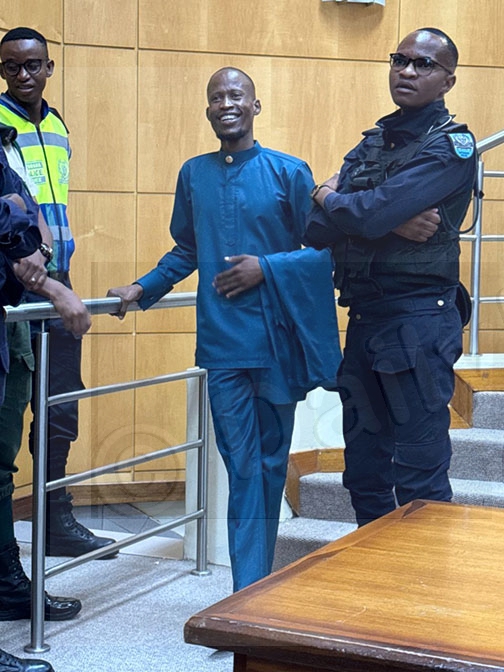DPP appeals Makofis ruling on drugs
08 Sep 2014
A legal war on the rightful ownership of ephedrine drugs, which have been in the custody of the police, after they were confiscated from a convicted drug mule, Tamara Azevedo is still raging on.
In the latest development, the Directorate of Public Prosecutions (DPP), which is adamant on taking the drugs or handing them to any relevant authority for appropriate disposal, recently filed a notice of appeal with regard to Principal Magistrate Goodwill Makofi’s ruling on what should happen to the disputed drugs.
The notice of appeal was challenging the decision and an order of magistrate Makofi dated 26 June 26, which neither favoured the prosecution nor the convict.
The appeal which has been filed with the Gaborone High Court is premised on the grounds that the magistrate erred in holding that he had no authority to order the forfeiture of the drugs to the state because the Drugs and Related Substance Act did not authorise him to do so.
The appeal further argues that the magistrate erred in holding that Azevedo was entitled to the drugs in question notwithstanding the fact that she did not have the requisite permit in terms of Section 8 of the Drugs and Related Substance Act.
The case emanates from South African drug mule Azevedo, who was convicted for importing ephedrine drugs into the country without the consent of the director of public health services.
The law provides that whoever should claim such an exhibit should apply for its return within a period of three months, and if the period elapses, the exhibit would automatically be forfeited to the state.
In the case, the director of public health services did not show such a desire and as such Azevedo, through her lawyer Mr Friday Leburu, applied for the return of the ephedrine. Accordingly, Mr Leburu acting on power of attorney applied for the return of the drugs immediately after the closure of the criminal case which saw Azevedo being fined P5 000 or six months imprisonment in default of payment after her plea of guilty.
After several court appearances where the state fiercely opposed the return of the drugs to the convict, the court made it clear that the state should procedurally show course why the court cannot give back the drugs to the convict. The court gave the prosecution time to go and put its house in order when it comes to argue its case before court.
Ultimately in his order of 26 June 2014, magistrate Makofi, who has since recused himself from the case and advised the prosecution to take the case to another court, ordered the prosecution to persuade the director of public health services to apply for the forfeiture of ephedrine drugs.
The order was such that the application should be made within 14 calendar days of which if the director fails to do so, the magistrate would hand the drugs to the defence counsel; two days after the collapse of the 14 days.
The state was supposed to have filed the application by 10 July 2014 but failed to meet the deadline and a state counsel from the Attorney General’s Chambers, Mr Puso Motlhabane blamed this on late instruction by the DPP on behalf of the director of public health services.
Ephedrine is a second scheduled drug under the Drugs and Related Substances Act, and is not a habit forming drug such as cocaine and mandrax which are listed under schedule one. Its possession does not constitute an offence and a person in possession of ephedrine while in transit through Botswana can either notify the director of public health services prior to his arrival or 48hours after he/she had left the country.
However, the case has not yet been allocated a judge. Unlawful importation of ephedrine into Botswana attracts a fine of up to P20 000 and or one year prison term, but trial magistrate courts have been imposing fines and suspended prison terms. ENDS
Source : BOPA
Author : Benjamin Shapi
Location : GABORONE
Event : Court case
Date : 08 Sep 2014





